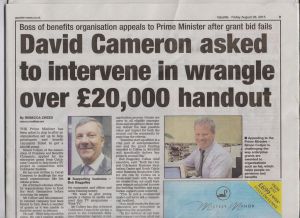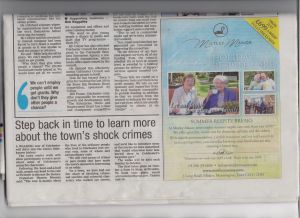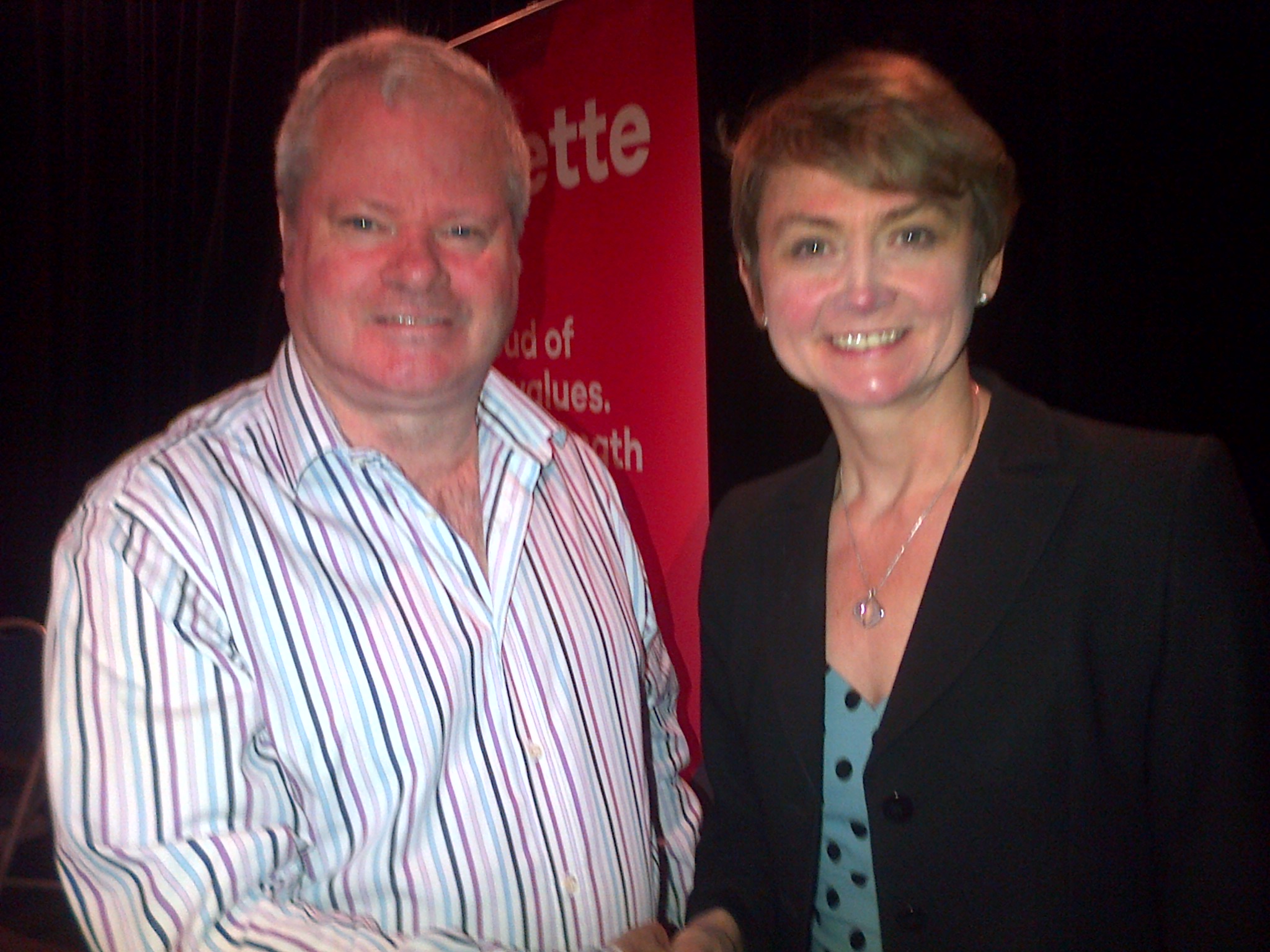Work TV
Watch our TV Channel dedicated to the ‘World of Work’. Explore our video library for informative videos featuring career opportunities at leading companies, franchising opportunities, further education and recruitment professions and their services.
Simon Collyer
Economic Situation Remains Stable
Main points for May to July 2015
There were 31.09 million people in work, 42,000 more than for February to April 2015 and
413,000 more than for a year earlier.
There were 22.74 million people working full-time, 361,000 more than for a year earlier.
There were 8.36 million people working part-time, 52,000 more than for a year earlier.
The employment rate (the proportion of people aged from 16 to 64 who were in work) was
73.5%, little changed compared with February to April 2015 but higher than for a year earlier
(72.8%).
There were 1.82 million unemployed people (people not in work but seeking and available to
work), 10,000 more than for February to April 2015 but 198,000 fewer than for a year earlier.
The unemployment rate was 5.5%, unchanged compared with February to April 2015 but lower
than for a year earlier (6.2%). The unemployment rate is the proportion of the labour force (those
in work plus those unemployed) who were unemployed?
There were 8.99 million people aged from 16 to 64 who were economically inactive (not working
and not seeking or available to work), 24,000 fewer than for February to April 2015 and 65,000
fewer than for a year earlier.
The inactivity rate (the proportion of people aged from 16 to 64 who were economically inactive)
was 22.1%, little changed compared with February to April 2015 but down slightly from a year
earlier (22.3%).
Comparing May to July 2015 with a year earlier, both total pay (including bonuses) and regular
pay (excluding bonuses) for employees in Great Britain increased by 2.9%.
Jeremy Corbyn Wins It
The rise of Jeremy Corbyn, to the point where he has become the next Labour leader is pretty amazing. The opening up of the franchise for the Labour leadership election in order to connect Labour with a wider base gave Corbyn a chance. By reaching out to a whole load of people alienated by politics all aiming to be market driven all in the centre, a whole lot of ordinary people have found a champion.
With the cruel and unjust treatment of claimants getting steadily worse, Jeremy Corbyn’s arrival is a bit like Spartacus pitching up if you’re a slave.
Obama rose to power with a simple slogan ‘change’. Corbyn’s announcement he is bringing in a new type of politics ought to give the Tories some sleepless night.
Travel-to-Interview – Unfair Contracts
TRAVEL-TO-INTERVIEW –Unfair Contracts
This submission is from Mr Collyer the founder of the Association of Pension & Benefits Claimants CIC to the DWP Work & Pernsions Committee.
The ABC believes that the Travel-to-Interview scheme is an Unfair Contract in law and is an ‘abuse of a dominant position’ by the DWP.
Benefit Claimants are finding it harder and harder to live on their benefits. Although food prices are static or dropping in money terms, quantities supplied are falling. Note your average bar of chocolate and how many brands have shrunk in size. One supplier of chicken breasts to Tesco’s has proudly added to the advertising strapline, printed on their bags ‘With added water’. An injection of water is frequently used to bring chicken breasts up to the required weight. It is hardly protein needed to sustain life.
So although inflation is still low officially; true inflation, the rate of actual inflation being felt by shoppers, is being felt much more keenly.
The Travel-to-Interview scheme has NO written terms and conditions, a practise used on other DWP schemes. The NEA scheme for example - where claimants are forced to sign-off, before claiming their loan without knowing the exact interest rate or terms. The practise of failing to put things in writing is frequently used by the DWP in order to create deniability – in same way staff refuse to give their full names on the telephone.
Claimants who write in to the JCP and complain to a specific individual, often find their response is from someone else, so no one individual can be held personally accountable.
Claimants are being forced to pay for travel from their food budgets. The cost of rail travel and bus travel has skyrocketed since privatization. A return ticket to London from Colchester just 55 minutes travelling is £50.40. JSA for a single person is £73.10.
Claimants submitting job interview information are finding that Work Coaches are refusing to ‘approve’ travel funding in advance. So on going to an interview a Claimant is unsure that they will get refunded. Travel-to interview is ‘Discretionary’ while job searching is ‘Mandatory’. Claimants are being forced to ‘gamble’ with their precious benefits.
You would not ask a builder to work on your house, and then claim there was no budget left, and the builder would have to accept the fact he was not going to be paid?
On-going to an interview; say on a Friday a Claimant urgently taking in their receipts on a Monday can find their Work Coach too busy to see them without an appointment and this can take time to arrange. If they hand in their receipts; Work Coaches are quibbling. They can bring in all kinds of arguments. Where was the job advertised, how did they get to hear of it? A whole load of largely irrelevant questions all designed to slow up payment.
People who work on contracts, like IT staff are finding that the JCP are refusing to fund interviews for contract work. They are being systematic discriminated against, despite the fact their industry -like many other service industries - has moved to a more flexible model. They are no different to supply teachers who sell their labour on an: ‘as needed basis’.
Other issues
On signing-on, Jobcentre Plus are reacting to the statement given over the telephone rather than waiting for claimants to attend a signing-on interview where the details are checked. Thus HMRC are being told to cancel Tax Credits before a jobseekers details are checked. This is a Breach of Due Process.
A man’s part-time job (PAYE) finished on June 30th but he was working 15.5hrs a week but he had further work on the horizon and potentially a grant being decided upon. He was claiming Working Tax Credits (WTC) as with a his ‘work ‘tallied up, he was working more than the required 30hrs a week necessary to claim WTC. He signed-on July 30th giving a telephone interview to the DWP and then went into the JCP offices to sign-on the following day (31st July). On the 30th the DWP had contacted HMRC and claimed the man had stopped work on the 30th June not the 30th July. Thus the man was deprived of Tax Credits run-on and he was unable to pay various bills and suffered from a lack of food but also severe late payment fees from two credit cards. The DWP said the man could ask for a Mandatory Reconsideration but that it could take up to 28 weeks to have his grievances addressed, even though it was immediately apparent that the DWP had made a mistake.
Failing to check a claimants details with the claimant when on signing on (details that were given over the telephone and subject to potential error) before taking any action is a ‘Breech of Due Process’.
More…
The same man on signing-on was told by his Work Coach was although there was a waiting period and he would not be paid JSA for his first week, he would be offered a chance to apply for a loan. This was In order to help him survive - he could get paid the day he signed, on the fifteenth of the month. Normally he was scheduled to be paid JSA on the eighteenth of the month – this way he would get his benefit paid on his signing day.
On visiting JCP offices to sign on the 15th, the man found his Work Coach very vague about when he would actually be paid. His Tax Credits has stopped prematurely, he had no ‘phone time’ and on checking the ATM later that day there was no payment.
After going back to the JCP offices, staff told the man he would have to telephone the Basildon Delivery Centre and ‘claim’ this early JSA payment, it was not automatically given. The man was then told by JCP staff, he had to telephone himself, and that they only had the same telephone number he had. Eventually after having an argument with staff, they eventually emailed Basildon and the man received a call from the next day, and by midday he had been paid. He had to do two trips to the Food Bank during this period having signed-on and having his Tax Credits prematurely stopped.
In summary
The DWP have a range of ‘under- the-counter-practises’ designed to delay payment to the Claimant. Practises where official deniability can actioned.
-The Travel-to-Work scheme should have, proper written, terms and conditions.
-Claimants going to a job interview should have a proper form to complete. This is to stop Work Coaches from delaying or withholding payment by asking for largely irrelevant information.
-Claimants who are relying on their benefits to live, should have the option to get a Travel Warrant in advance.
-In terms of those who are paid in arrears; a penalty compensation scheme needs to be introduced to stop JCP offices from delaying payment. This should be part of the schemes Terms and Conditions (T&C’s) given to the Claimant. The T&C’s should be pointed out by the adviser and the Claimant should be asked to initial a box on the T&C’s to prove he was aware of them. This practise should be widely introduced. In Court, traders selling advertising have to prove, not just the fact they faxed or emailed and order with the Terms & Conditions, but that they had drawn attention to the T&C’s if they wish to win a case against a customer who refused to pay them. Companies were faxing orders but not faxing the T&C’s printed on the backs of the order form.
-The London Underground are funding a scheme to give people starting a job free travel for two months. Schemes like these need to be introduced nationally.
-The DWP should not take action to cancel Tax Credits or change any other arrangements liable to prejudice a Claimant before a new claimant has had time to check that their details (taken over the telephone by the DWP) are correct.
-It should be made a criminal offense for a government official or government minister to create schemes, whereby staff in government departments collude - act in secret against the interests of the public for financial gain.
-The public official who agrees to take part in such a scheme should be equally liable in law if it is shown that they acted in concert with a higher official, in taking part in schemes designed to disadvantage members of the public, by deliberately denying or delaying a benefit or benefit in kind. This is the ‘Nuremburg’ argument. Officials should not be able to deny personal responsibility (the following orders argument) if it can be clearly shown that they would or could have reasonable grounds, to know or suspect, that the actions they were taking, could or would disadvantage a member of the public.
-The public should have the right to get the full name of any official they are dealing with and their contact details should be supplied on demand. The withholding of surnames should be prohibited as well as the use of alternative names - so called ‘pen names’.
-Correspondence to a specific individual should be answered by that individual, or by another person acting on behalf of that individual. In other words, personally accountability should not be avoided by simply passing letters for someone else to answer, if an official has been written to in person. He should reply in person even via an ‘alternate’ (a person replying on your behalf).
- The Claimant Commitment should also include a section on the Work Coaches commitment for example to act honestly and fairly, in ‘good faith’.
-A contract is a meeting of minds. Forcing claimants to accept a; Travel-to-Interview scheme that is unfair and open to abuse by the JCP, is an Unfair Contract in law.
This is what one Claimants has to say about Travel to Interview:
On Tuesday 8 September 2015 I received a call from Reed IT Division in Cambridge asking me if was still available for work as they have a role that would suit me as IT Engineer for 3 months contract for Norfolk Police as IT Engineer Near Norwich, Under the terms of the plans, As I will not be able to received Travel to Interview scheme expenses as this a contract role I cannot attend the interview.
I hope these arguments will go some way towards creating a fair scheme.
<end>
IDS Parliament Debate Petition
To debate a vote of no confidence in DWP secretary Ian Duncan Smith For denying the existence of, and refusing to publish data on the deaths of claimants of incapacity benefit and employment and support allowance between November 2011 and May 2014. This is despite the rulings of the Information Commissioner and public pressure resulting in a 200,000 strong petition.
Please sign here: https://petition.parliament.uk/petitions/104436
Grants Inequality
The ABC have also been in the press recently as we have been battling with the Department of Business Skills and innovation. Government grants have a system where money has to be spent and then evidenced before you can claim the funds back. This prejudices small organisations and we have been fighting to make changes so far without sucsess.
We apologise as this article was scanned in two parts. Still you get the general gist.
The Colchester Gazette Article


The World Tonight
The ABC featured on the BBC Radio Programme: The World Tonight. Not quite are fifteen minuets of fame, more like fifteen seconds. Listen to the Yvette Cooper report which was very balanced and accurate.
United Nations Investigate the DWP
UNITED Nations officials will visit the UK in the next few months to investigate whether Iain Duncan Smith’s welfare reforms have led to “grave or systematic violations” of disabled people’s human rights. A formal investigation has already been launched by the UN’s Committee on the Rights of Persons with Disabilities. UN investigations are conducted confidentially.
Last week, Work and Pensions Secretary Iain Duncan Smith unveiled plans to launch a fresh attack on sickness benefit. He outlined aims to get one million people off the Employment and Support Allowance (ESA) disability benefit, claiming too many people with “common” mental health conditions are reliant on the state. New statistics show this will affect nearly half - 43% - of all disabled people currently claiming ESA.
The United Nations (UN) is an intergovernmental organization to promote international co-operation. A replacement for the ineffective League of Nations, the organization was established on 24 October 1945 following the Second World War to prevent another such conflict. At its founding, the UN had 51 member states; there are now 193. The headquarters of the United Nations is in Manhattan, New York City, and experiences extraterritoriality. Further main offices are situated in Geneva, Nairobi and Vienna. The organization is financed by assessed and voluntary contributions from its member states. Its objectives include maintaining international peace and security, promoting human rights, fostering social and economic development, protecting the environment, and providing humanitarian aid in cases of famine, natural disaster, and armed conflict.
Meeting Yvette Cooper MP
We attended the Yvette Cooper MP leadership roadshow, at the in Colchester Arts Centre and were then interviewed by BBC Radio journalist, Paul Moss.
Yvette came across as a very polished speaker. As one who was trained in speech and drama at a young age, it appeared she has been coached professionally in that department? Yvette peppered her speech with ‘parables’ and perhaps the most shocking one was; that women who are raped who have a third child as a result, have to take their evidence of the crime, to the ‘benefits agency’ to claim child benefit. It raised a gasp from the crowd but these anomalies crop up all over the place with the DWP, and although its a great story, Jobcentre Plaus and the DWP can, on occasions, be very sympathetic to indervidual cases.
Yvette wants to see two million science and technology jobs created, echoed today by inventor James Dyson, whom it must be said, shipped much of his production to Malaysia after writing a report for the government on improving Britain’s competitiveness.
Yvette also wants to see wages for the likes of care workers increase. As she pointed out, social cleansing in London means that elderly people to have to pay for services their family’s might provide free-gratis. A very good point.
There was much talk about the NHS, and one of the audience described the General Medical Council in very unflattering terms. Another pointed out that the Labour Party had taken eighteen months to oppose the Bedroom Tax. 'Here, Here' we thought - New Labour had looked the other way, too concerned about their image with voters to speak up.

The ABC's Simon Collyer meets Yvette Cooper MP Shadow Home Secretary
Yvette talked much about the governments ideological 40% cuts in services and that included community policing.
She also talked about the government scrapping the targets relating to child poverty which have long been suspect anyway. There was a good discussion about mental health in children. That came as a suprise.
I liked Yvette’s reference to Hillary Clinton who has been talking about business ‘short-termism’ and ‘Quarterly Capitalism’.
Yvette has robust ideas about allowing in 10,000 asylum seekers - as opposed to economic migrants - and she talked of the Labour Party's internationalism in relation to the ‘boat people’ landing in places like Greece.
There was much focus on Green issues and a forth coming Paris conference.
What was not touched was benefit sanctions or claimant deaths, and rather more controversial aspects of the welfare state.
Unlike Jeremy Corbyn, Yvette is more a of a ‘hawk’ when it comes to managing the economy. No printing of money to pay for expansion of the welfare state one feels.
Yvette was educated at Eggar's School, a comprehensive school in Holybourne, and Alton College, both in Alton, Hampshire. She read Philosophy, Politics and Economics at Balliol College, Oxford, and graduated with a first-class honours degree. She won a Kennedy Scholarship in 1991 to study at Harvard University, and she completed her post-graduate studies with an MSc in Economics at the London School of Economics.
Overall Yvette comes across as very bright and returned most of the ‘friendly’ questions with the skill of a professional tennis player warming up. Her father was a trade unionist and she has strong values in regard to human and civil rights, especially for women for whom she is a strong advocate.
She came across as a consensus politician, perhaps a little too polished on the presentation front. Yvette would make a very able Home Secretary, but for me she is not quite ‘gutsy’ enough for the top job. A bit too sensible perhaps?
As I said to the BBC interviewer, ‘she is a consensus politician, whereas Jeremy Corbyn could not give a toss’. She is perhaps simply too nice to go up against Ian Duncan Smith, George Osborn and David Cameron. The country needs a ‘Tiger’ to stand up against the Tories, the policies from the Labour Party can come later. That to me seems to be the mood of the hour.
Yvette made a joke at the beginning about all the leadership race leaders getting on to well. You feel they want to win, but not so badly they are willing to tip themselves out if the bed.
Yvette came to Colchester, and in a swirl and she and her entourage had gone just as fast. We wish Yvette well - she has a good heart, and she wants to do the right thing. She is very capable, highly intelligent, but sensible rather than charismatic. It has been the blandness of modern politics that has put people off voting. Jeremy Corbyn, is leading the army of the dispossessed. Yvette is playing the middle of the court. Will Yvette's common sense prevail over Corbyn's charisma - we will have to wait and see?
Simon Collyer may feature on BBC Radio 4 'The World Tonight' after giving my comparison with Jeremy Corbyn to BBC journalist; Paul Moss.
http://www.bbc.co.uk/programmes/b006qtl3
Paul Moss began his career in the Midlands, working in Birmingham, and then serving as Penzance Correspondent for Westcountry Television. He came to BBC Radio Four in 1997, as a reporter for World at One and PM, and then moved to The World Tonight three years later. Since then he has broadcast from all around the world, including extensive reporting on the conflict in the Middle East and from the United States, where he covered the aftermath of September 11th, as well as the political and cultural developments that followed.In 2006, Paul won the Foreign Press Association's award for Environment Story of the Year for his reports on the environmental impact of India's economic growth.Long before he began travelling for work, Paul spent much of his life hauling a backpack around various parts of the world. He still travels for pleasure when he can, and has written for the BBC's News website as well as The Guardian, New Statesman and The Erotic Review.You can follow Paul on Twitter @bbcpaulmoss
Good News on Jobs in the EU
Employment in the EU is rising. It is actually has been below 11% since February 2012.
European Union statistics agency Eurostat said the jobless rate in the currency union fell to 10.9% in July from 11.1% the month before. The fall was helped by a sharp fall in unemployment in Italy, where the jobless total fell by 143,000.
The wider 28-member EU saw the unemployment rate fall to 9.5%, the lowest rate since June 2011.
The lowest unemployment rate was in Germany, at 4.7%. Greece had the highest unemployment rate, at 25%, the latest available data from May showed, followed by Spain at 22.2% where unemployment is still very high.
The rate of youth unemployment across the Eurozone is still extremely high however that rate also declined to 21.9% in July from 22.3% a month earlier.
UK Immigrants Crackdown
The U.K plans to jail people working illegally in England and Wales for up to six months in a bid to deter undocumented migrants, particularly the current influx of asylum-seekers from Calais. And takeaway restaurants and liquor stores, long the domain of the under-the-table economy, could lose their licenses if they’re busted going off-book. This is on top of announcements earlier this month that English landlords will have to evict tenants if their asylum applications fail. It’s all part of a plan to banish the idea that the U.K. is a “soft touch” when it comes to immigration.
Another tactic to deal with the flow of asylum-seekers: invalidate their claims before they arrive. The European Commission is working on a list of “safe countries” whose citizens will be ineligible for asylum, which will include some Balkan and African states, according to Frans Timmermans, Commission first vice-president.























